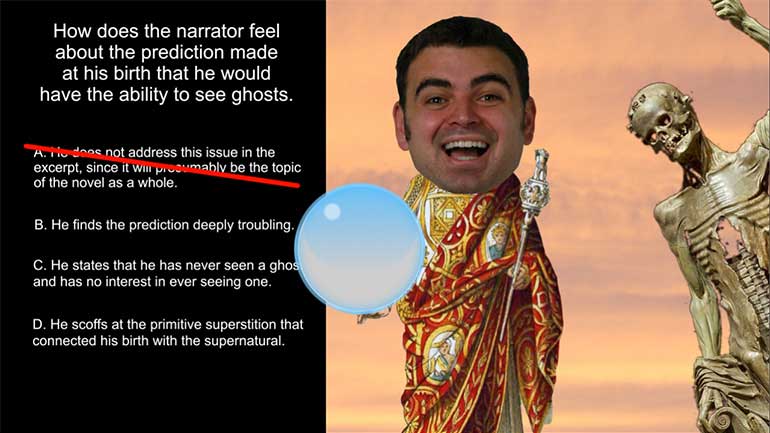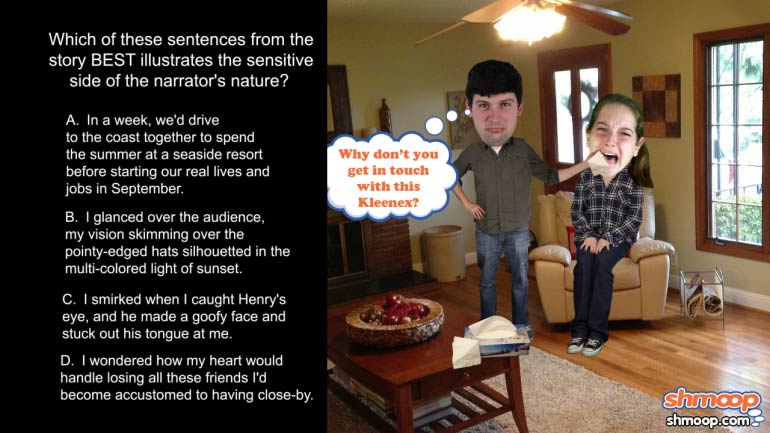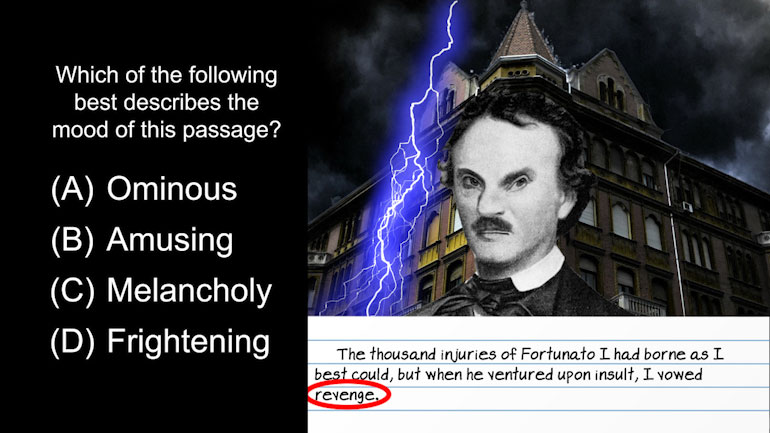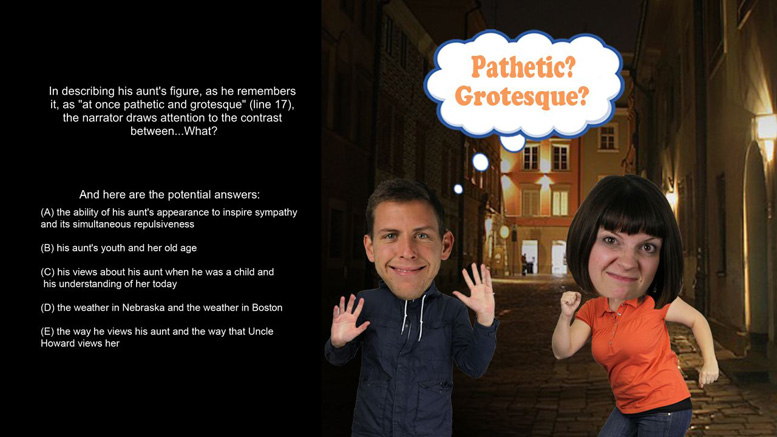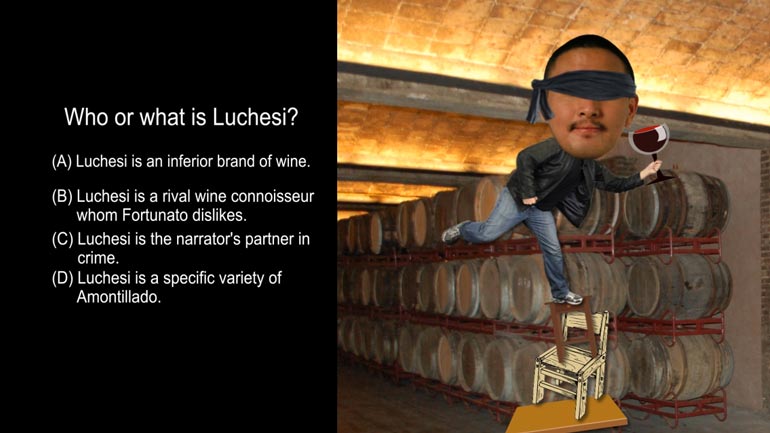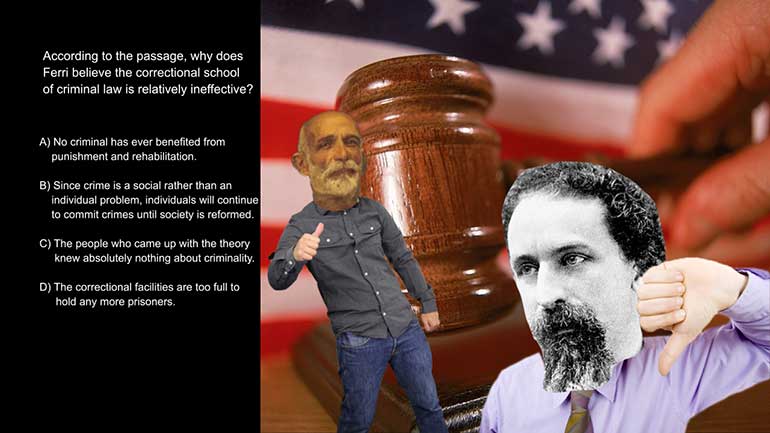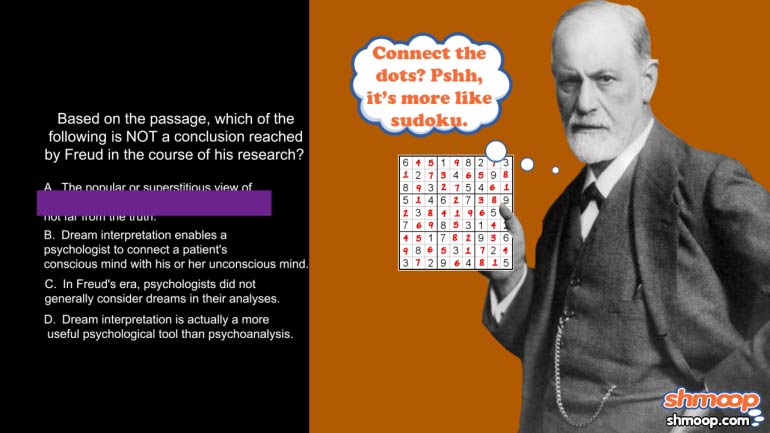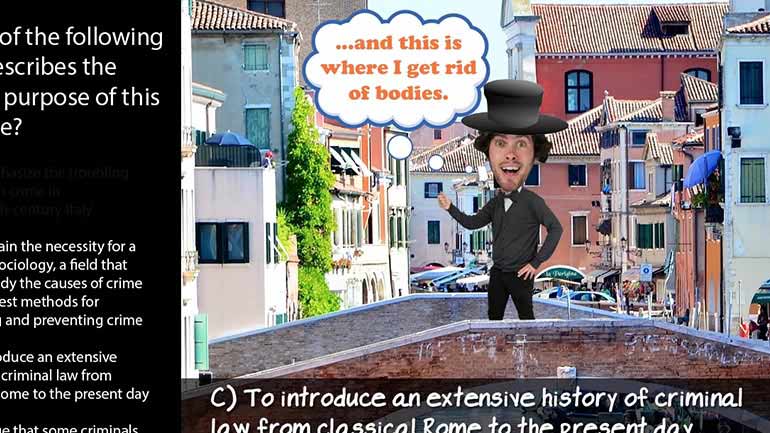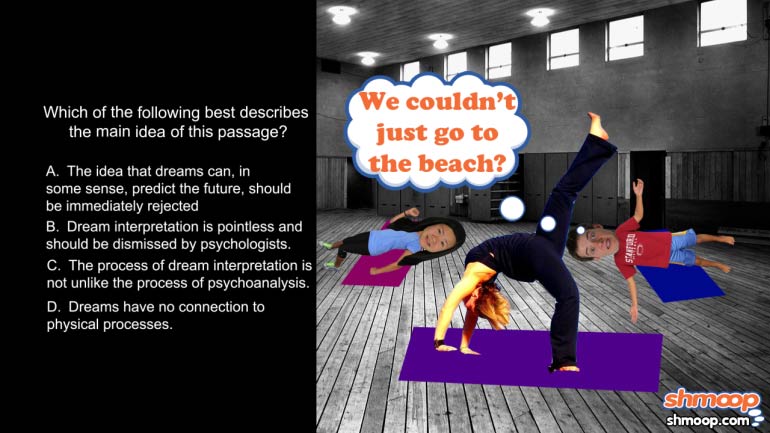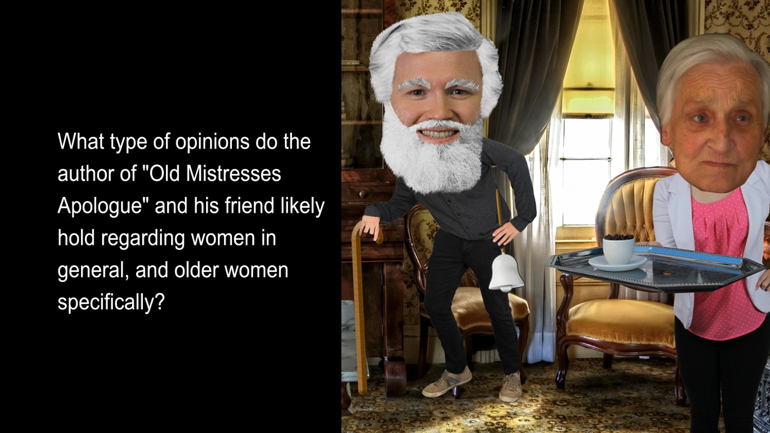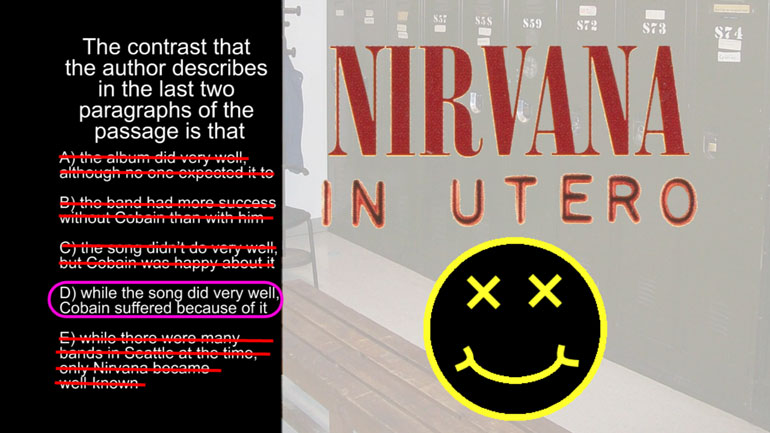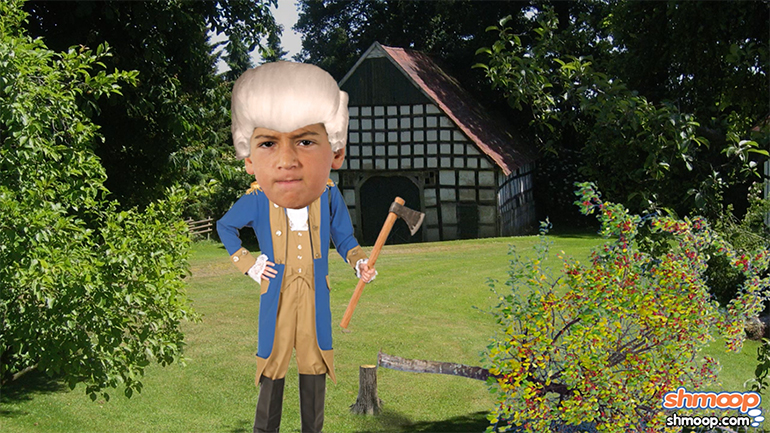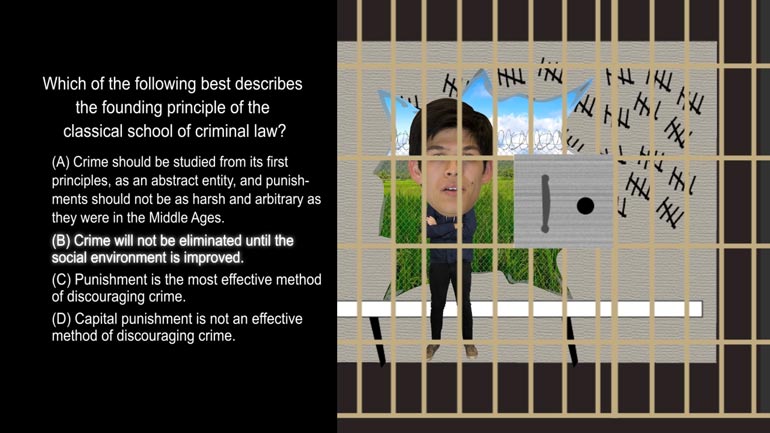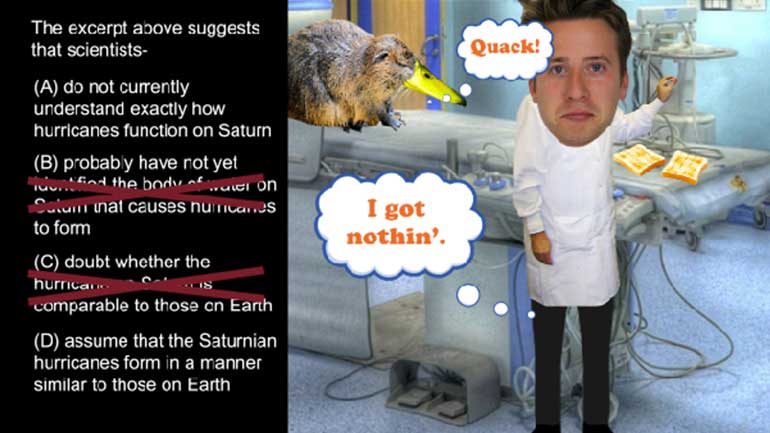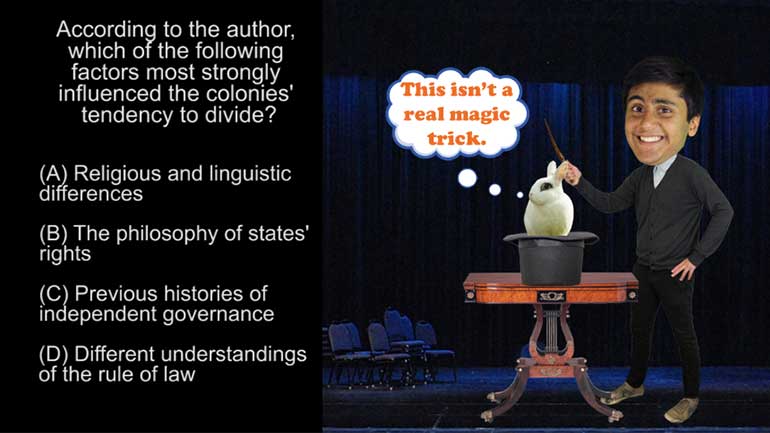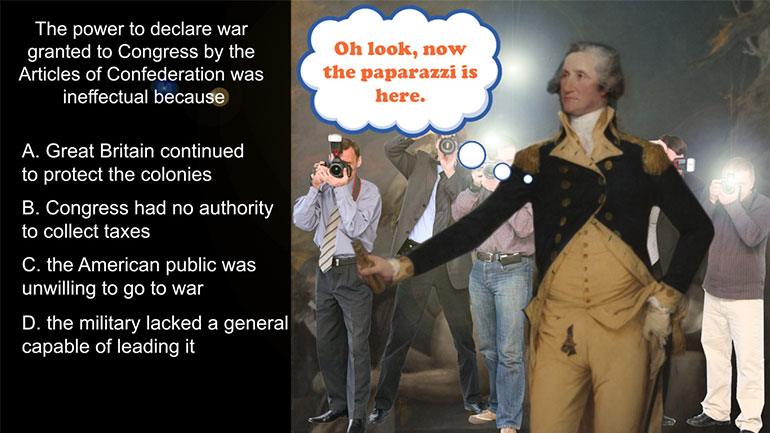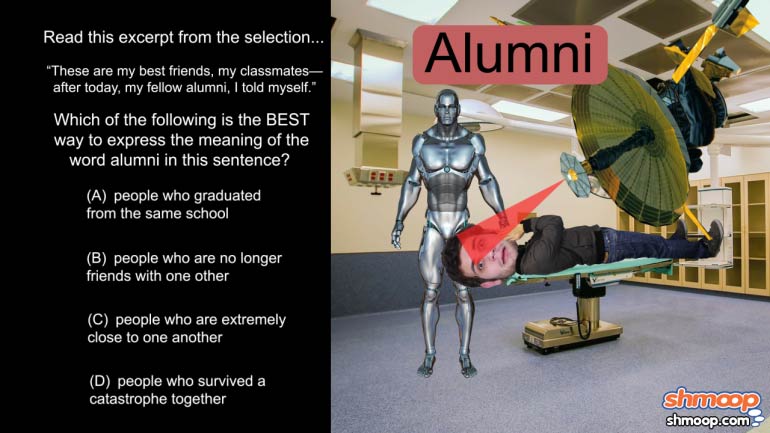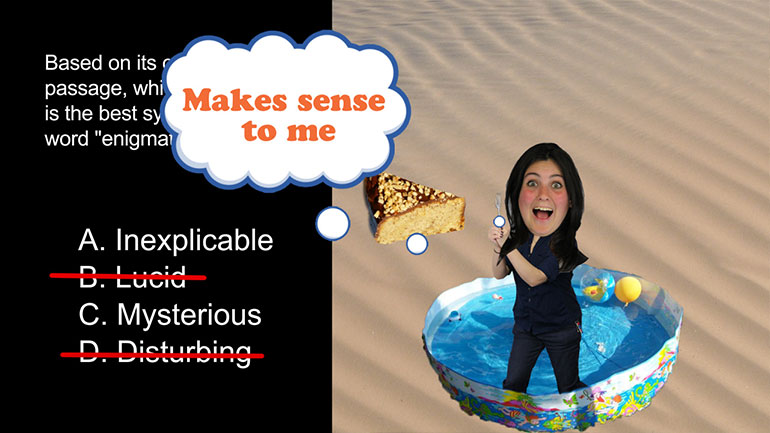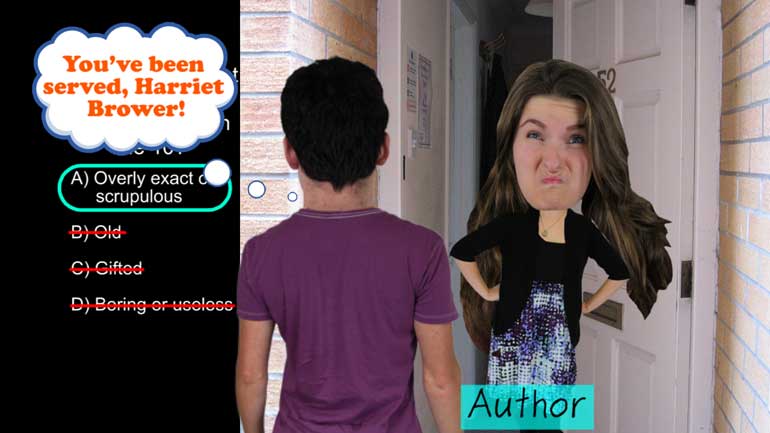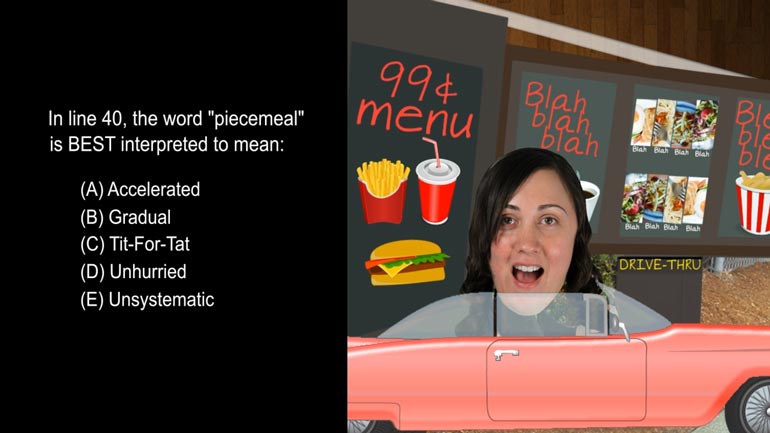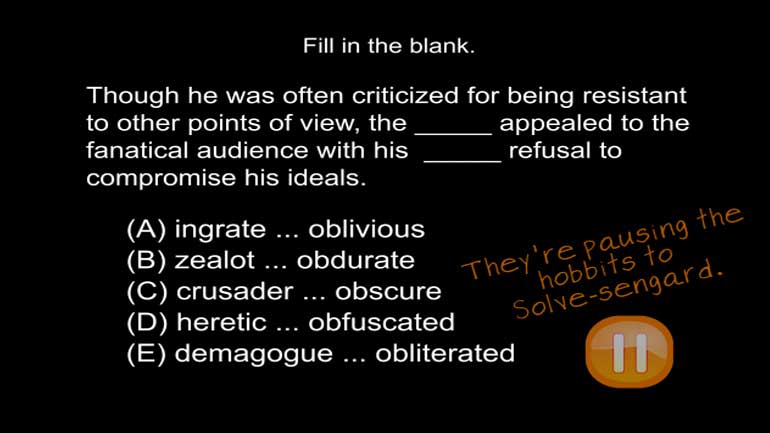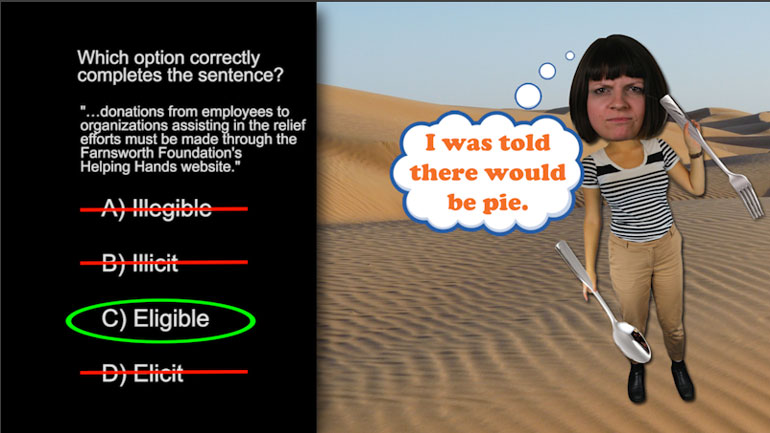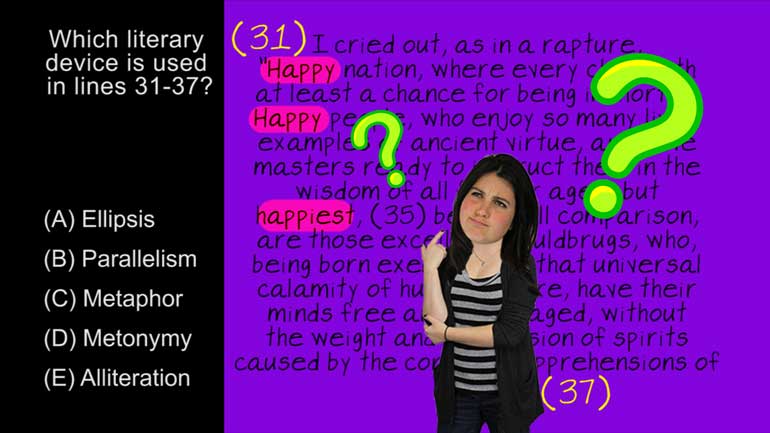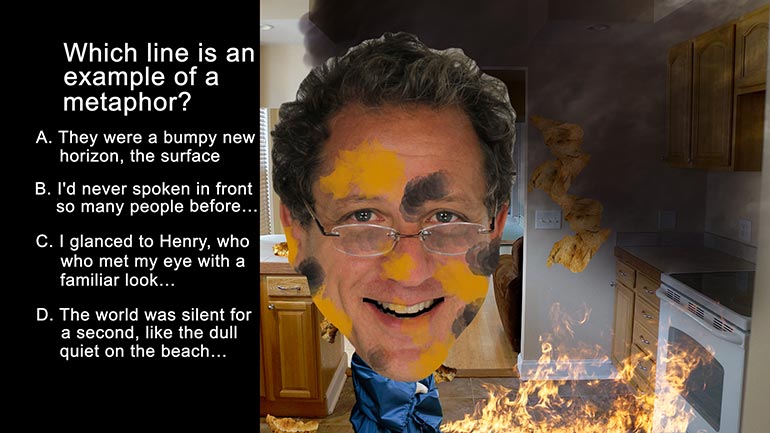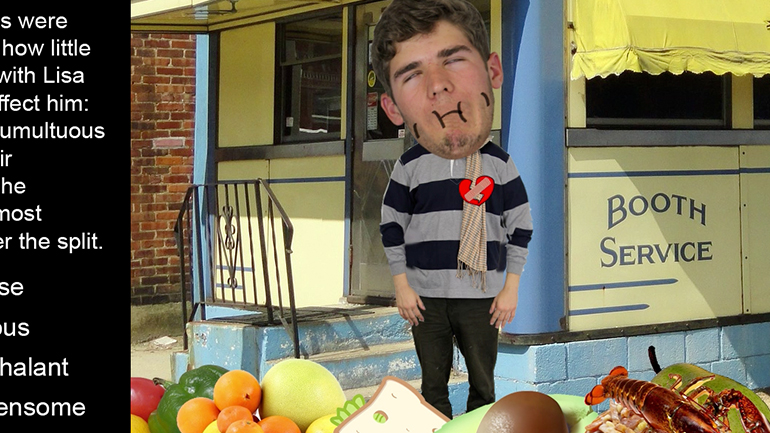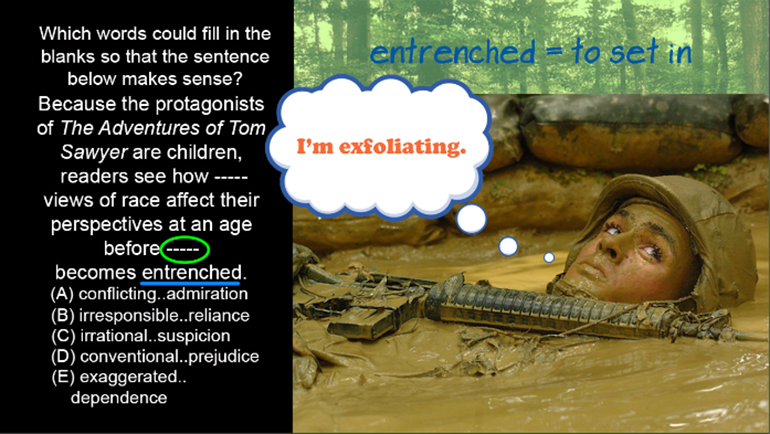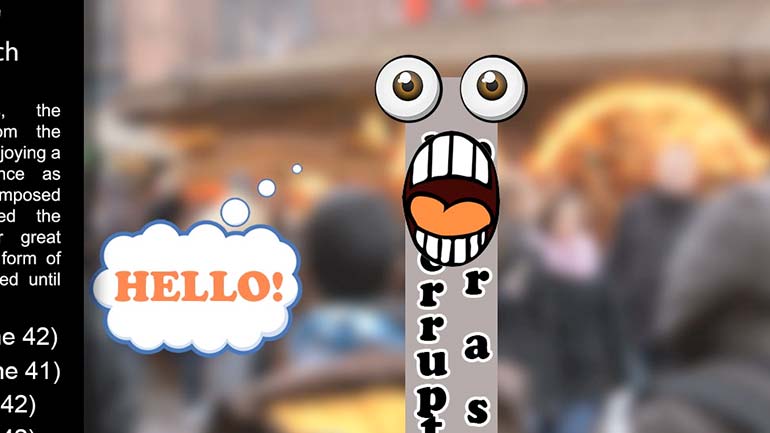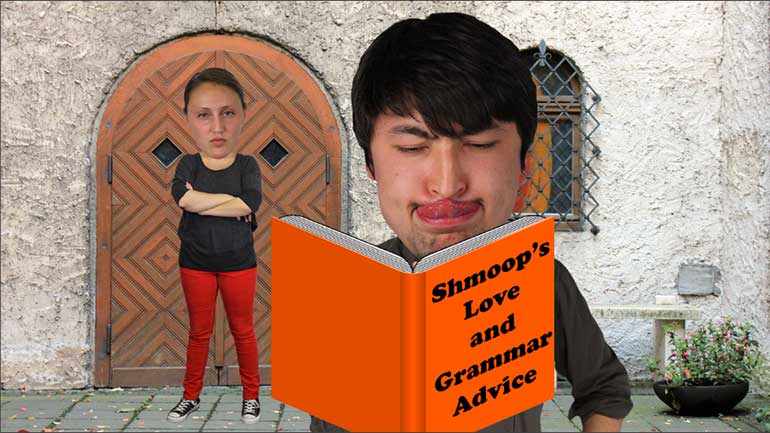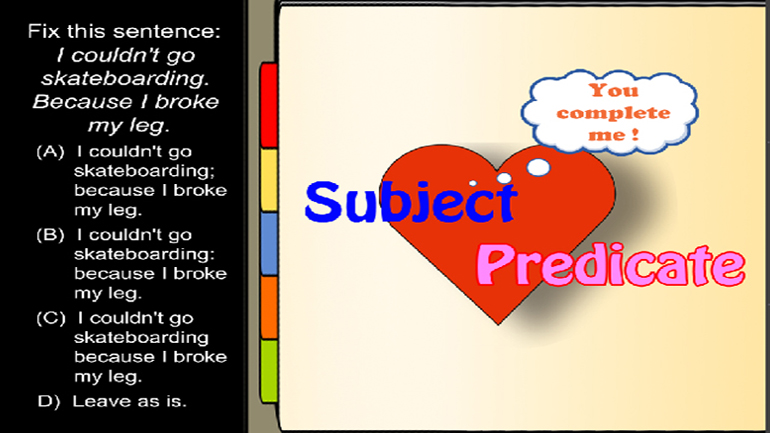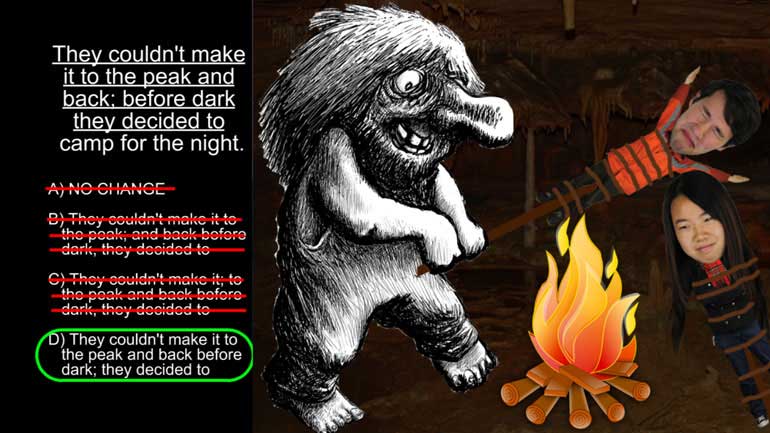ShmoopTube
Where Monty Python meets your 10th grade teacher.
Search Thousands of Shmoop Videos
English I Videos 96 videos
ACT Reading Prose Fiction Drill 1, Problem 4. How does the narrator feel about the prediction made at his birth that he would have the ability...
AP® English Language and Composition: Comprehension Drill 1, Problem 1. The speaker would agree with all of the following statements except what?
AP English Literature and Composition 1.6 Passage Drill 5. Death is primarily characterized as what?
AP English Language and Composition 1.4 Comprehension 376 Views
Share It!
Description:
AP English Language and Composition: Comprehension Drill 1, Problem 4. In lines 41 through 45, "composed" modifies which word?
Transcript
- 00:00
[ musical flourish ]
- 00:03
And here's your Shmoop du jour, brought to you by Asiatic prairies,
- 00:07
where the buffalos roam in search of wonton soup.
- 00:10
Yep. Good stuff. Love that wonton soup...
- 00:13
[ mumbles ]
Full Transcript
- 00:19
All right, you done reading?
- 00:20
[ mumbles ]
- 00:30
[ mumbling continues ]
- 00:39
All right. And... you're done. Whether you like it or not.
- 00:43
In lines 41 through 45, "composed"
- 00:46
modifies which word? And here are the potential answers.
- 00:49
Five-dollar words... Blah, blah, blah...
- 00:52
And let's just go.
- 00:54
So, to make this easier, we'll lift the chunk in question out of
- 00:57
the rest so that we can check it out in isolation.
- 01:00
Right here.
- 01:01
Ah, there we go. Okay, so, that's better.
- 01:03
Wow, these Asiatic prairies sound... relaxing.
- 01:06
No time for relaxing, though. Gotta focus.
- 01:09
Uh-huh. Okay, there's the word "composed,"
- 01:12
which in this case is being used as a verb and is the
- 01:15
predicate of the sentence. So the question becomes
- 01:18
who exactly is doing the composing?
- 01:20
Which noun is the subject that goes along with the verb "compose"?
- 01:24
It looks like the thing that makes this question a little tricky is the use of the
- 01:27
following interrupting phrases:
- 01:30
"the wandering nomads from the distant Asiatic prairies,
- 01:32
enjoying a free and easy existence as fighters and hunters..."
- 01:36
Hmm. We're rethinking our dream of being a nomad.
- 01:40
Fighting and hunting all day sounds, well, kind of stressful.
- 01:42
Sorry, we're really trying to focus here.
- 01:44
Since the interrupting phrases are set apart from the rest of the sentence with commas,
- 01:48
we can ignore them when trying to figure out which noun is the subject.
- 01:52
The commas signal that we can remove the phrases without changing the basic meaning of the sentence.
- 01:57
So, listen, we'll prove it.
- 01:58
Our own ancestors composed songs which
- 02:02
celebrated the mighty deeds of their greatest leaders and yadda yadda yadda.
- 02:06
See, it totally makes sense.
- 02:08
Since we know that no words included in these phrases are crucial to the sentence,
- 02:11
we can cross out choice A - existence, C - prairies,
- 02:15
and D - fighters. We're looking for the subject,
- 02:17
and we can never remove a subject from a sentence without
- 02:20
causing the whole darn thing to collapse.
- 02:22
With those rude interrupting phrases out of the way, it's now clear that
- 02:25
the noun "ancestors"
- 02:27
is the subject that goes with the verb "composed."
- 02:30
This makes choice B the right answer. Like ancestors composed.
- 02:33
Yeah. It's sort of amazing they had any time for poetry with
- 02:36
all the fighting and hunting and nomad-ing that they were doing. Yeah.
Related Videos
AP English Language and Composition: Passage Drill Drill 1, Problem 2. What is the speaker's primary purpose in using onomatopoeia in line four?
AP English Literature and Composition 1.1 Passage Drill 7. The primary purpose of this passage is what?
Wishing upon a star may help you pass your AP English Language and Composition test, but answering this question would be a safer bet.
Take a look at this shmoopy question and see if you can figure out which device the speaker employs the most.
Feel like shifting gears and answering a question about shifting tones? We've got you covered. Take a look at this question and see if you can foll...
